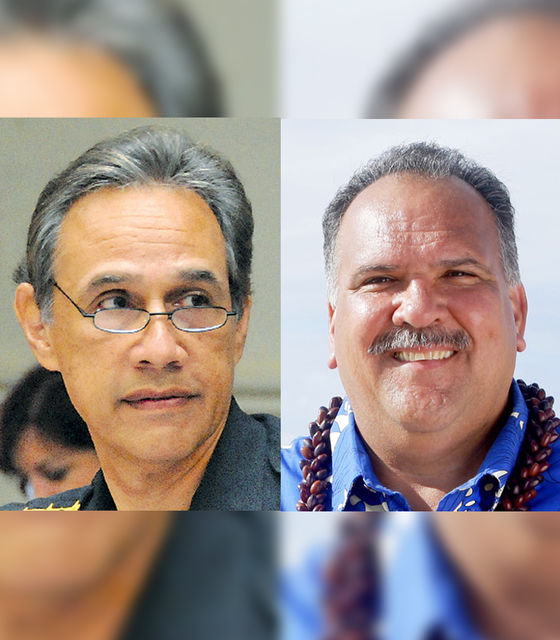LIHUE — After a lengthy debate about depoliticizing the police department and policy making, the Kauai County Council Wednesday decided to expend up to $15,000 for special counsel to represent the police commission.
The council also decided not to expend up to $30,000 for the mayor’s special counsel. That means the mayor will have to rely on his private attorney and the Office of the County Attorney, should the mayor appeal an Intermediate Court of Appeals decision in June that said the mayor could not suspend and/or discipline the chief of police.
That power currently lies with the police commission, ruled the ICA. But if the mayor chooses, the battle could go to the Hawaii Supreme Court.
After hearing comments from county attorney Mauna Kea Trask, council members split the $45,000 and voted 5-1 to expend the funds for special counsel for the police commission and 4-2 to not expend funds for the mayor’s special counsel.
Councilman Mason Chock was not present to vote.
Council Chair Mel Rapozo, council members Gary Hooser, Arryl Kaneshiro, Ross Kagawa and JoAnn Yukimura voted to carry the motion, which would spend up to $15,000 for police commission’s special counsel. Councilman KipuKai Kuali‘i voted against the motion.
As for special counsel to represent the mayor, councilmembers Kagawa, Kaneshiro, Kuali‘i and Rapozo voted to receive the motion and not have the $30,000 pay for the mayor’s special counsel.
The last time a mayor reprimanded a police chief was when Mayor Maryanne Kusaka placed Kauai Police Department Chief George Freitas on administrative leave for 120 days at the request of the police commission in 2001, Trask told councilmembers.
The difference was that the commissioners thought the mayor had the authority and wanted to have the police chief disciplined, Trask said.
In the current litigation with the police chief, the mayor suspended the chief for seven days. It was based on an ongoing investigation within the department that involved a personnel dispute, Trask said.
“Does the mayor have the power to take action involving a personnel dispute administratively within the department where it looks like under the charter the commission can’t act?” Trask said.
He said that question could be answered through a higher court.
In 2001, Kusaka had the blessing of the police commission to discipline the police chief. In 2012, Mayor Bernard Carvarlho, Jr. did not, Trask said.
Council members differed on opinions when it came time to vote.
Hooser said although it costs money, the decision to determine whose authority it was to suspend and/or discipline the police chief needed to be settled by a higher court.
“As council members, we are certainly not in the position to supervise the police chief,” Hooser said. “But we do have to deal with the actions of the police department, most of which are done in executive session and it involves sometimes writing checks for their actions.”
Kagawa said the mayor should “stop wasting taxpayer’s money” and if he wanted to appeal the decision, “he should waste his own money.”
“Previous councils have gone over this matter,” he said. “At some point, we have to accept the decision and stop appealing.”
Rapozo said courts interpret law and the council’s job was to create policy.
“Stop the bleeding,” Rapozo said. “In my mind, the public wants the department depoliticized.”
Trask said the Kauai Charter, which became fully effective in 1969, mandates that his office represent both parties if the money did not get approved by the council Wednesday.
“I don’t think this is a feud,” Trask said. “This is two high-ranking departments having a question about legality. It affects every other county commission and state board. It’s a big question. I think it deserves a Supreme Court decision.”





